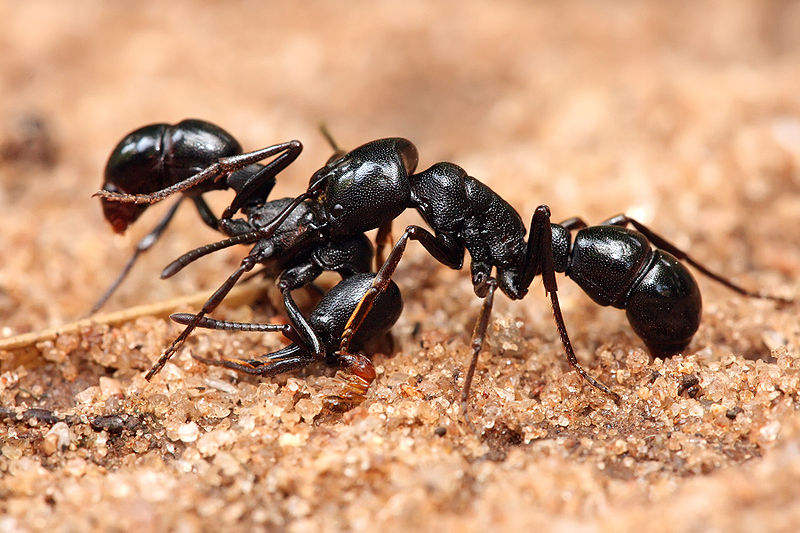
"Ants are said by those who have tasted them to have a peculiarly agreeable, strongly acid flavor." (Image bt Muhammad Mahdi Karim.)
Dietary habits vary based on geography and according to an article in the February 11, 1889 edition of the Brooklyn Daily Eagle, which ran originally in the Pittsburgh Dispatch, Maine lumberjacks were partial to buckets of ants. The story in full:
“Should a Maine lumberman find a stump or rotten log with thousands of big black ants in it he scoops the torpid insects from their Winter domicile and fills his dinner pail with them. When he gets back to his camp at night he sets the pail in a cool place until his supper is ready, then brings it forth, and, while helping himself to pork and beans, helps himself also to ants. There is no accounting for tastes, and he esteems a handful of ants a very choice morsel.
Ants are said by those who have tasted them to have a peculiarly agreeable, strongly acid flavor. The woodsmen, whose food consists largely of salted meat, baked beans and similarly hardy victuals, naturally have a craving for something sour. ‘Ants are the very best of pickles,’ said an old logger, who confessed to having devoured thousands of them. ‘They are clearly insects, and there is no reason why they should not be eaten, if one can get over a little squeamishness caused by the thought of taking such crawling things into the stomach. There is nothing repulsive about them, and when a man has once learned to eat the creatures as pickles he prefers them to any kind.’
Ants have at various times and in different countries been quite extensively used in medicine, and formic acid, which was first obtained by distilling the bodies of those insects but is now artificially prepared, is a well known and useful chemical product.

"Herodotus tells of ants that live in the desert of India, which are in size 'somewhat less than dogs, but larger than foxes.'"
Herodotus tells of ants that live in the desert of India, which are in size ‘somewhat less than dogs, but larger than foxes.’ These creatures, in heaping up the earth after the manner of common ants, were a very efficient aid to the Indian gold hunters. The sand they throw up being largely mixed with gold, the Indians were accustomed to go to the desert in the heat of the day, when the ants were under ground, load the sand into sacks, pile their sacks upon their camels and hasten from the spot as rapidly as possible. The ants, according to the historian, were not only the swiftest of animals, but were gifted with such a sense of smell that they immediately became aware of the presence of men in their territory, and unless the Indians got away while the ants were assembling to attack them not a man could escape.”
